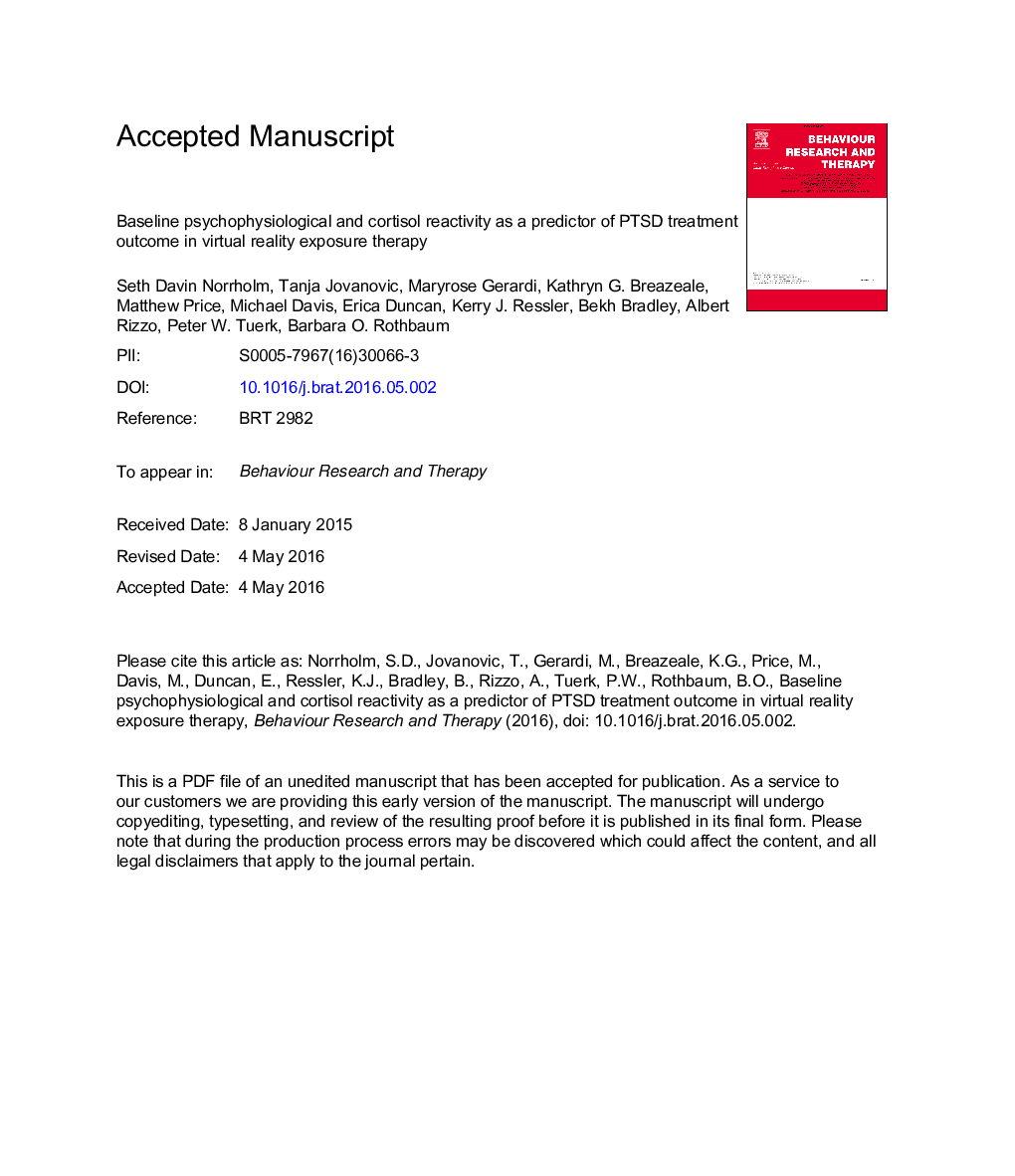| Article ID | Journal | Published Year | Pages | File Type |
|---|---|---|---|---|
| 7262090 | Behaviour Research and Therapy | 2016 | 41 Pages |
Abstract
Our goal was to examine the predictive nature of initial psychophysiological (e.g., startle, skin conductance, heart rate) and stress hormone responses (e.g., cortisol) during presentation of VR-based combat-related stimuli on PTSD treatment outcome. Combat veterans with PTSD underwent 6 weeks of VR exposure therapy combined with either d-cycloserine (DCS), alprazolam (ALP), or placebo (PBO). In the DCS group, startle response to VR scenes prior to initiation of treatment accounted for 76% of the variance in CAPS change scores, p < 0.001, in that higher responses predicted greater changes in symptom severity over time. Additionally, baseline cortisol reactivity was inversely associated with treatment response in the ALP group, p = 0.04. We propose that baseline cue-activated physiological measures will be sensitive to predicting patients' level of response to exposure therapy, in particular in the presence of enhancement (e.g., DCS).
Keywords
Related Topics
Health Sciences
Medicine and Dentistry
Psychiatry and Mental Health
Authors
Seth Davin Norrholm, Tanja Jovanovic, Maryrose Gerardi, Kathryn G. Breazeale, Matthew Price, Michael Davis, Erica Duncan, Kerry J. Ressler, Bekh Bradley, Albert Rizzo, Peter W. Tuerk, Barbara O. Rothbaum,
